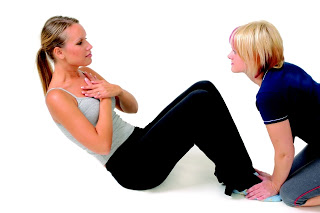I get asked all the time ‘how to become a personal trainer?’ There are so many people out there who enjoy health and fitness, who would like to help others to get the benefit of a healthy lifestyle and would like a job they enjoy. Personal training and the leisure industry as a whole offers all these things and much more! I have always enjoyed my time in the fitness industry, and am sure this is the industry I will stay in for the rest of my life!
Becoming a good personal trainer is much more that doing a course and gaining your personal training certification, this is a good start point. The course you choose and the certification you get will get you to a position where you should be a safe and effective personal trainer. But to make yourself an excellent one takes years of learning and self-improvement, but most of all experience with clients.
So what do you need to do to get on the road to becoming a personal trainer?
- Attend and pass a recognized course leading to an appropriate personal trainer certification
- Get insurance and REPs registration
- Find work
In this first article in a 2 part series I will explain some details to consider when looking at personal trainer courses.
When looking at which personal training course to do it is a bit of a mine field, many people who want to enter the industry get as far as looking at courses then give up. It is not an easy task to understand all the different options that you have in terms of getting qualified.
Here are my top tip of what to look for in a personal training course:-
- Is the course REPs recognised? Any course you consider should be REPs recognized, this allows you to ensure the it has been taught at the correct standard to work in the industry within the UK. If the course is REPs accredited it also allows you entry onto the register after you have graduated, for more information of REPs click here. All REPs courses have also been approved so your qualifications will be accepts in Australia, New Zealand, Ireland, Europe, and South Africa (this is constantly growing). To be a personal trainer you will need to get your Level 2 – Gym Instructor and your Level 3 – Personal Trainer qualifications under your belt. Many training providers also offer additional modules that can help you increase your knowledge beyond this base point. Note there are many great courses out there that are not REPs approved, but as a basic qualification it is vital that you choose one that is. IF not it may not be accepted by employers and insurers.
- What format will the course be delivered in? Will the course be one where you attend and have lessons with a tutor, distance learning or a mixture of the two. It is important to have some attendance as that often helps you to understand the key concepts. This should really suit your time frame and also your preferred learning style. Bear in mind that personal training is a practical skill, so I would not advise wholly on-line training unless you have a great deal of gym experience.
- What is the training company’s history? It is important to find out a little more about the training company themselves, how long have they been operating? What awarding bodies do they use (CYQ and ActiveIQ are the main ones)? Can you talk to any ex-students? What career development do they offer?
- Who will my tutor be and what is their experience? You ideally want a tutor who has practical experience as a personal trainer and also a good degree of experience in the education of personal trainers. A tutor with practical experience in the industry will be able to add a great deal of insight above what those who are more theory based can.
- Where is the course located? Is the course in a convenient location for you to travel to? Is the training room nice and a good learning environment? Is the gym well located and have a good range of equipment?
- What is the price? There are a wide range of prices you can get a personal training course for, you should not necessarily go for the cheapest. You should look at which provider will give you all the things you want from a course and insider price last.
I hope this quick guide helps any of you wanting to get into the fitness industry! Please shout this article out on social media and if you have any questions post them in the comments box below and I will get an answer up for you!
Next week I will look at REPs registration and getting insurance.
TOM


2 Comments
hi I’m looking at becoming a PT and wonderd if u code send me some information on the courses that you offer. quick summery of my self I hated any sort of sports but 3 years ago weighing almost 22ston and only 27 thought that’s it changed my life style and lost 11stonr and started to love sport and exercise that much I’m looking to becom a PT.
Hi Rhys!
Thanks for connecting, and what an acheivement! Well done on the weight loss, that would be a very motivational story for your clients. If you add me on Twitter @TomForesight or search my Facebook page we can talk it through!
Looking forward to hearing from you!
TOM